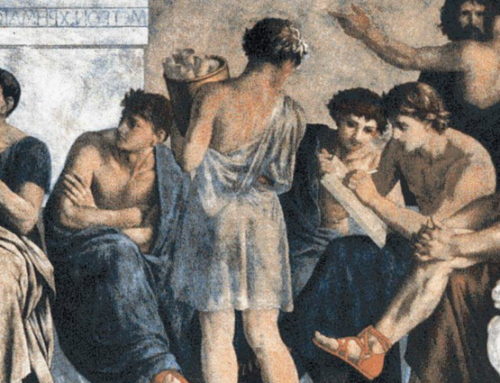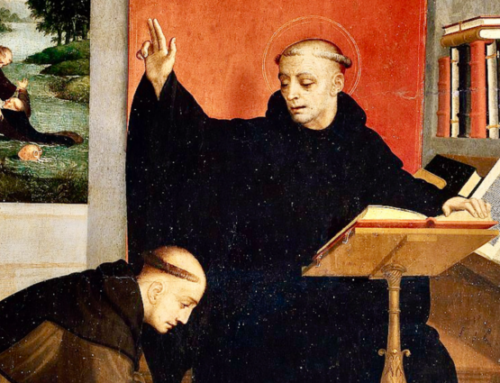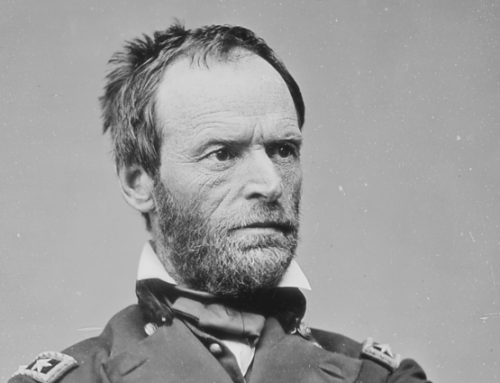 Search the web and you will find any number of lofty “purposes of education:” Education enables us to develop to the fullest. Education cultivates the human mind with values and principles. Education teaches us to think and analyze the world. And many more…
Search the web and you will find any number of lofty “purposes of education:” Education enables us to develop to the fullest. Education cultivates the human mind with values and principles. Education teaches us to think and analyze the world. And many more…
But even those vapid platitudes greatly exceed the reality of modern American education. Today’s public schools do no such things. Public schools are in fact the natural offspring of the Progressive Education movement. John Dewey, the movement’s author and founder, did not envision high purposes. Quite the contrary. He constructed a theory of education that saw children—the product of public schools—as cogs in the machine. Not people made in the image of God, but future workers in the social-democratic order. He emphasized equality rather than liberty. Students need to fit the educational pattern, not the other way around. Materialism was at the heart of his philosophy. People, including school students, are simply matter, and matter can be shaped, fashioned, and manipulated into any form necessary. It was a scientific process for Dewey. Properly quantify the educational process, and you can produce an infinite supply of uniform workers.
We lament the absence of honor and courage in our society, the shocking selfishness that we witness daily. But if we are honest, we must admit that this condition is not an accident. Progressive Education produces what C.S. Lewis called “men without chests” by design. If we want a different kind of culture, we need a different kind of education.
One of the hallmarks of Progressive Education is its institutionalization of learning. Students become less and less human. They are herded rather than nurtured. Classical Christian Education (CCE) recognizes the unique, God-given gifts and attributes of every child. Proverbs 22 says “Train up a child in the way he should go…” Note that Solomon says the way “he” should go…a way unique to him. Not squeezed into some generalized institutional pattern.
Progressive Education is also vocational. That is, the goal is to produce an ample supply of workers for diverse menial tasks across the economy. Classical education is much more than vocational. Think about what “liberal” means, as in the Liberal Arts—from the Latin for “free.” It is the education that a free man or woman needs in order to live responsibly and make wise decisions. It is more than the ability to get a job, it is the foundation for a good and virtuous life.
Obviously, the Progressive vision for public education is secular. God has no place in public education. Instead it is somehow supposed to be “neutral” to matters of transcendent value. CCE is based on the tripartite foundation of Truth, Goodness, and Beauty. Each of those in turn is rooted in the eternal, the transcendent. Classical education takes us out of ourselves and into the realm of the divine.
Dewey’s educational philosophy was furthermore highly socialistic. Dewey was a proud member of the American Socialist Party and believed that government-funded education could move the country in a Socialist direction. His educational philosophy served the greater ends of Socialism in his view. CCE serves much different ends. Ultimately, CCE is a Kingdom-serving enterprise. Education is never an end in itself. Always ask yourself, education for what?
Finally, Progressive Education is about training up boys and girls who know how to follow. Dewey’s statist philosophy required a passive citizenry, and his educational model sought to keep students focused on themselves and their most narrow interests rather than broader social concerns. The classical education model is more concerned about helping students become capable decision-makers in their community and in their families. Leaders who help bring about positive change in their culture. Risk-takers who are not afraid of inevitable uncertainty and the unknown. And creators who can discover new solutions and articulate beauty in new ways.
When you really start to consider the alternatives, the choice between Progressivism and Classical Christian Education is not a hard one. The task before us is simply to increase the opportunities for families to enjoy the fruits of the Liberal Arts.
Republished with gracious permission from The Saint Constantine School (2017).
The Imaginative Conservative applies the principle of appreciation to the discussion of culture and politics—we approach dialogue with magnanimity rather than with mere civility. Will you help us remain a refreshing oasis in the increasingly contentious arena of modern discourse? Please consider donating now.







Thank you for article. Can you post in the comments section a solid but not too lengthy biography of John Dewy that proves and further discusses your points above? Thank you!